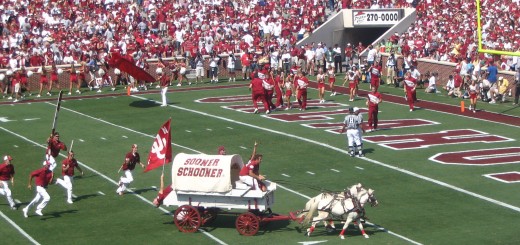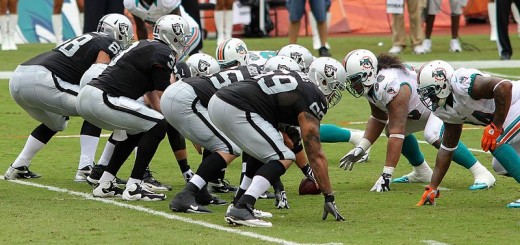Endangered Species
To BE an RB, or NOT to be an RB? THAT is the question. That’s RB as in running backs, of course. And it’s a question every young man that’s wanting to have a career as a running back in the National Football League should be considering.
Because the position of the star running back, that notion of the featured ball carrier who is the unquestioned superstar of the team, a position that used to be the glamor spot of the league, is now becoming more of an afterthought than a necessity. You remember star running backs, don’t you? You know, that position where the All-American guy, the one that dated the movie stars, and starred in the TV commercials, and would often times be the MVP of the league, used to play? Yes, that former marquee person is now getting phased out of the conversation in professional football.
More and more, the term the star running back is becoming an anachronism. He is becoming an undervalued commodity, an easily replaceable asset, a position that can be handled by multiple people. The position once made famous by Jim Brown, Gale Sayers, Walter Payton and Emmitt Smith is now being handled by a fairly new concept called “running back by committee.” The superstar running back is slowly becoming an endangered species.
There’s no question in my mind that the NFL WANTS it to be this way.
The average career length of an NFL running back is now estimated to be somewhere between 2.7 years and 3.3 years depending on the study and the criteria. Suffice it to say, the average length of a running back’s career is right around three years. Coincidentally, the legal length of a rookie contract IS three years long, meaning, since the NFL doesn’t want to pay rookies a lot until they are proven, smaller rookie contracts for the first three years helps keep costs down. And, as a result of that collectively bargained right, that contract a player signs AFTER his three year “internship” in the league is the real, significant money a player will make as a pro football player. Since the NFL does not think a running back will be around much more than three years, and teams don’t want to make any long term investments in players they think won’t be useful, guess who, when it comes down to who gets re-signed after their first three years, gets screwed more than any other position?
You guessed it. Running backs. Now, if someone were good enough during their first three years and did not suffer any type of serious injury, the team holding that player’s rights WILL of course try to re-sign that running back, but they really are not wanting to pay a lot, and will especially not want to think long term. But, even if a running back signs a new contract, the NFL teams have, as their right, the ability to CUT that player in the middle of his contract, to re-arrange their salary cap numbers. In other words, a running back can not only get screwed up by a hard hit he takes by the opposing team, he can get screwed by his OWN team, who can cut him if they think he’s not playing up to their standards.
But sometimes, running backs don’t play up to various high standards because of the myriad of injuries that they are prone to suffer. If you think, to paraphrase/quote that noted writer Mister Shakespeare, “it is Nobler in the mind to suffer The Slings and Arrows of outrageous Fortune,” you haven’t seen the punishment a running back takes every game. They are getting slings and arrows fired at them every play. EVERY time a running back carries the ball and gets tackled, he could suffer a career ending injury on THAT play. He could potentially have a tackler going low at his legs and tearing up his ACL, his MCL, breaking his leg, seriously spraining his ankle, or, he could have a player from his own team rolling up on his leg from some unseen direction and snap his leg in two, knocking him out for the season that way. Or, he could get tackled with a helmet to the mid-section and have his ribs broken, or an internal organ ruptured, or he could fall to the ground wrong and have his shoulder separated or his collarbone broken. Or, he could get tackled high with a helmet to his head area and either have his nose or his jaw broken, not to mention that he could suffer a concussion that could REALLY screw him over in later life.
Those are the plays when he HAS the ball. Thanks to the wide open passing game of today’s NFL, he is also forced to block opposing pass rushers on nearly every other play, which, when included with the times he carries the ball, often times has the cumulative effect of bashing and bruising the bones and the muscles of his body into a battered pulp. And that happens every week. Former great running back Earl Campbell took so many vicious hits to his legs, he can barely walk now. Nearly all of the people who played running back when they were younger are paying for it now in one way or another, usually with chronic sore knees. Playing running back takes its toll on the body.
And what happens when the wear and tear on a running back makes them a bit LESS effective than they used to be? The team goes into the draft and finds some college running back who is younger and CHEAPER, and who has less mileage on them and they either either completely replace the injury-plagued older back, or they compliment the older back with the rookie and another change of pace back and they all become part of a “running back committee.” The object of course is to always have a younger, cheaper replacement for the “older” player who can basically do the same job, but who has less mileage on them.
And heaven forbid that an NFL team would utilize a FIRST round draft choice on a running back. A player could have all of the tools in the world, he could potentially be a great running back, and the NFL has de facto made it into their practice that a team shall not “waste” a first round pick on a running back anymore. NFL teams think “their system” is what makes running backs good. They think anyone can be plugged in and they will do just as well. It doesn’t dawn on them that maybe it’s good running backs that can make the system look good.
One of the best running backs of his generation has made the news recently, and some of the reaction to “what will happen to him in the future” is telling. That would be Adrian Peterson of the Minnesota Vikings. We all know by now that he has been suspended from the league for the 2014 season for disciplining his child with a tree branch made switch that he smacked across his child’s rear end to punish him for alleged youthful misdeeds. (Peterson pleaded no contest and the legal case is over) That he was punished by the NFL is not the issue. That the Vikings don’t seem to care (fear of PC backlash?) about getting him back and having to pay the remaining years of his large contract is very interesting. The thought that they think they can replace a once in a generation type of running back talent with a likely mid-round draft pick (to save money and to continue this “bias against running backs doctrine”) says a lot more about today’s NFL than it does about the good or bad nature of Adrian Peterson.
The truth of the matter is, running backs don’t get the respect they deserve anymore. A running back could face a fourth and goal from the one yard line with the game on the line in the last few seconds of the Super Bowl. He could get handed the ball, and be stopped short of the goal line by the defense. Only, the running back, through some kind of extra, superhuman, second effort, could break the tackle and plunge into the end zone for the winning touchdown. He could be the hero of the game and a legend in his city’s mindset for as long as they remember such things. And that same 30 year old running back could get cut before the next season (by a team that wants to save money and feels like they’ve extracted all of the good play they could get out of that player), and replaced by a fourth round draft pick that ran a 4.5 forty at the combine. For what they do for a team, for the hell they have to go through, running backs deserve better than what they’ve been getting.
The question was posed at the start. To be a running back, or not to be a running back? The answer is — only if you are a masochist.





Very true as a Charger fan we have Ryan Matthews coining up as a free agent. The Chargers traded up in the draft with the prior regime spread headed by AJ Smith. Ryan Matthews is a great talent and has great bust and speed but as a top ten draft pick he ended up being an injury prone fumble machine. I like the kid but we have Branden Oliver who was undrafted from the U of Buffalo after breaking all NCAA rushing records. So do the Bolts pay Ryan Matthews what will be 40-50m or go with Oliver and use that money to get a stud pass rusher! We shall see.
Maertz
I just can’t believe how de-valued the NFL is trying to make the position of running back. The first couple of picks in the first round of the draft always seemed to have a running back. Now, they are lucky to get picked in the second.